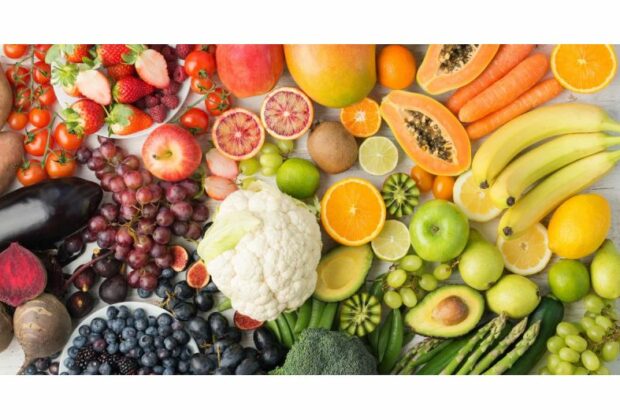A recent study reveals that consuming seven important meals consistently can help lead to a 70s free of disease.
In comparison to those who didn’t, the individuals who followed these dietary components the closest starting in their forties were in excellent health.
Less than one in ten persons were able to remain free of sickness, maintain good physical and mental health, and have the capacity to think, learn, and remember properly until they were 70 years old or older, which highlights the significance of eating a balanced diet.
The researchers conclude that, in light of their findings, a long-term objective of dietary recommendations should be to promote general healthy aging.
The Components that Win
Higher consumption of unsaturated fats, wholegrains, fruits, vegetables, nuts, legumes, and low-fat dairy was linked to a higher chance of healthy aging, according to the study.
The impact was also significant: the study discovered that persons who adopted a healthy diet starting in their forties had a 43–84 percent higher chance of being physically and intellectually well-functioning at age 70 than those who did not.
Consuming higher amounts of trans fat, sodium, whole meats, red meat, and processed meats has been linked to a decreased risk of aging healthily.
The study’s focus on healthy aging, which the researchers describe as the capacity to live independently and experience a high quality of life as we age rather than just the absence of sickness, makes it distinctive, according to the researchers.
“Traditionally, research and derived dietary guidelines have focused on preventing chronic diseases like heart disease,” stated Anne-Julie Tessier, a postdoctoral fellow at Harvard TH Chan School of Public Health in the US.
“Our study provides evidence for dietary recommendations to consider not only disease prevention but also promoting overall healthy ageing as a long-term goal.”
How the Scientists Collected the Data for their Study
The conclusions are based on information gathered over a 30-year period from over 100,000 people.
Participants in the study gave information on their food through questionnaires every four years and were at least 39 years old and free of chronic disorders at enrollment.
About half of the study’s participants had passed away by the time 2016 rolled around, and 9.2 percent had lived to be 70 years of age or older without experiencing chronic illness and in good physical, mental, or cognitive health.
One particularly noteworthy discovery, according to Dr. Tessier, was the correlation between a healthy ageing risk of 68 percent and the planetary health diet.
She clarified, “This diet is based on the EAT Lancet Commission’s report which emphasises fruits, vegetables, wholegrains, plant proteins and healthy fats from sustainable sources.
“The fact that it emerged as one of the leading dietary patterns associated with healthy ageing is particularly interesting because it supports that we can eat a diet that may benefit both our health and the planet.”
The results were presented at Nutrition 2024, the premier annual meeting of the American Society for Nutrition. They showed that, even after accounting for physical activity and other variables known to affect health, there were still significant relationships between diet and healthy aging.
A Well-Known Tale
The results are positive but not unexpected.
Numerous constituents are present in the Mediterranean diet, which has been repeatedly demonstrated to reduce the likelihood of chronic illnesses like heart disease and even prevent cognitive deterioration.
According to a recent study, cancer survivors who follow the popular diet plan may even have a lower chance of dying from their disease.
The findings indicate that individuals with any kind of tumor who adhered to the Mediterranean diet closely in the year before they were enrolled in the trial had a lower risk of cardiovascular death and a higher life expectancy than those who did not.








